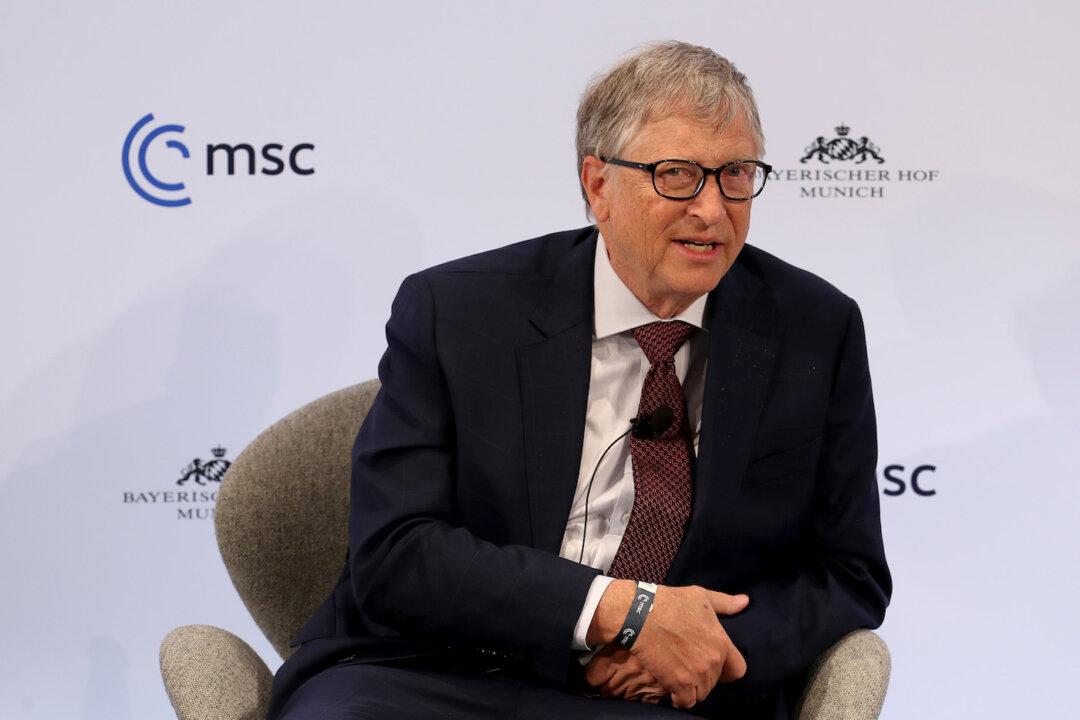Billionaire Bill Gates says the SARS-CoV-2 Omicron variant has spread faster across the world than the COVID-19 vaccines have, and that the variant is a “type of vaccine” that gives people cellular immunity. He also predicted on Feb. 18 that another pandemic was coming, and shared what he believes should be done “next time.”
At the 2022 Munich Security Conference, attended by security experts, politicians, and people of influence around the world, the Microsoft co-founder was asked: “Where would you assess where we are today in beating COVID-19?”




